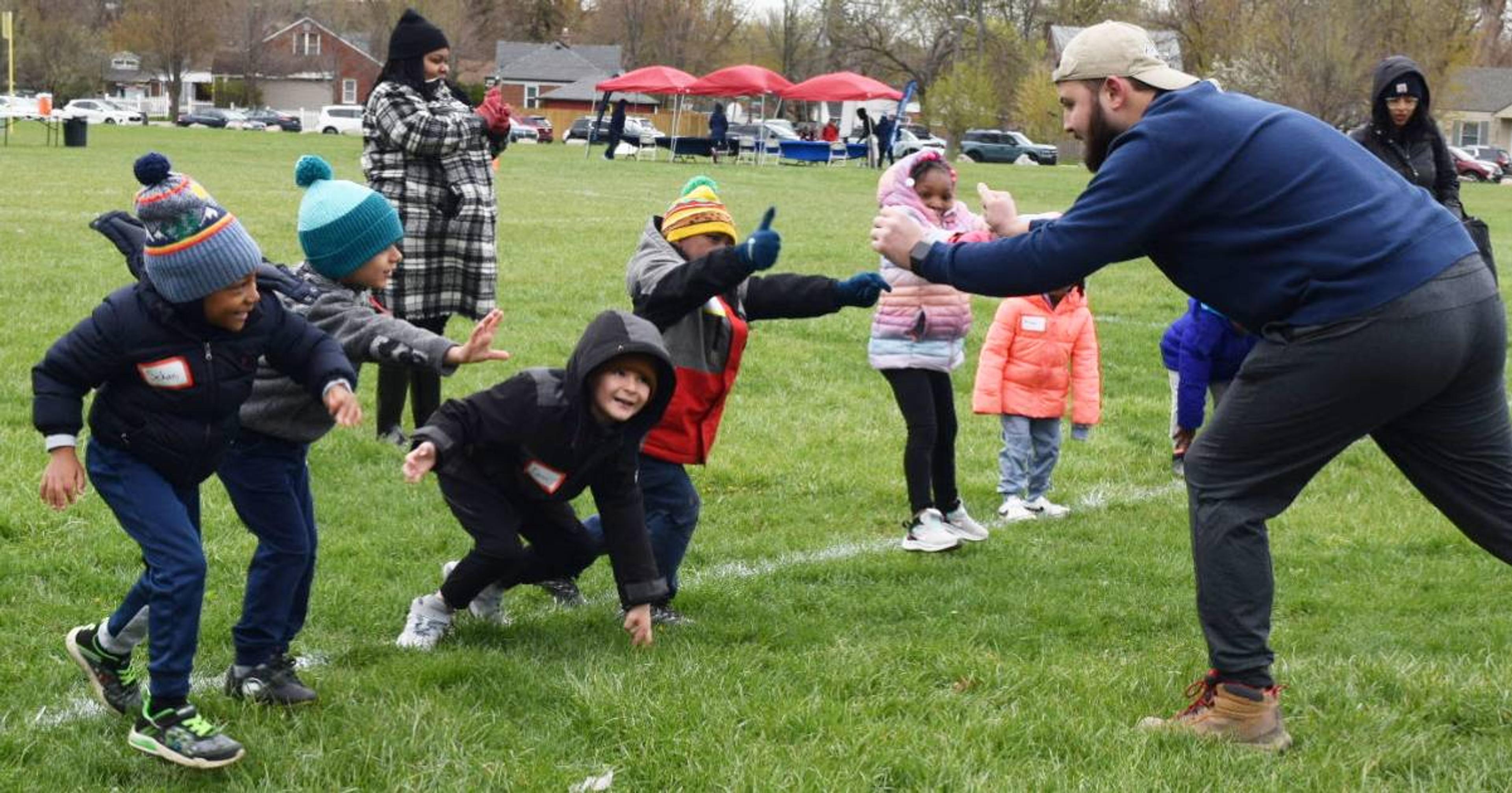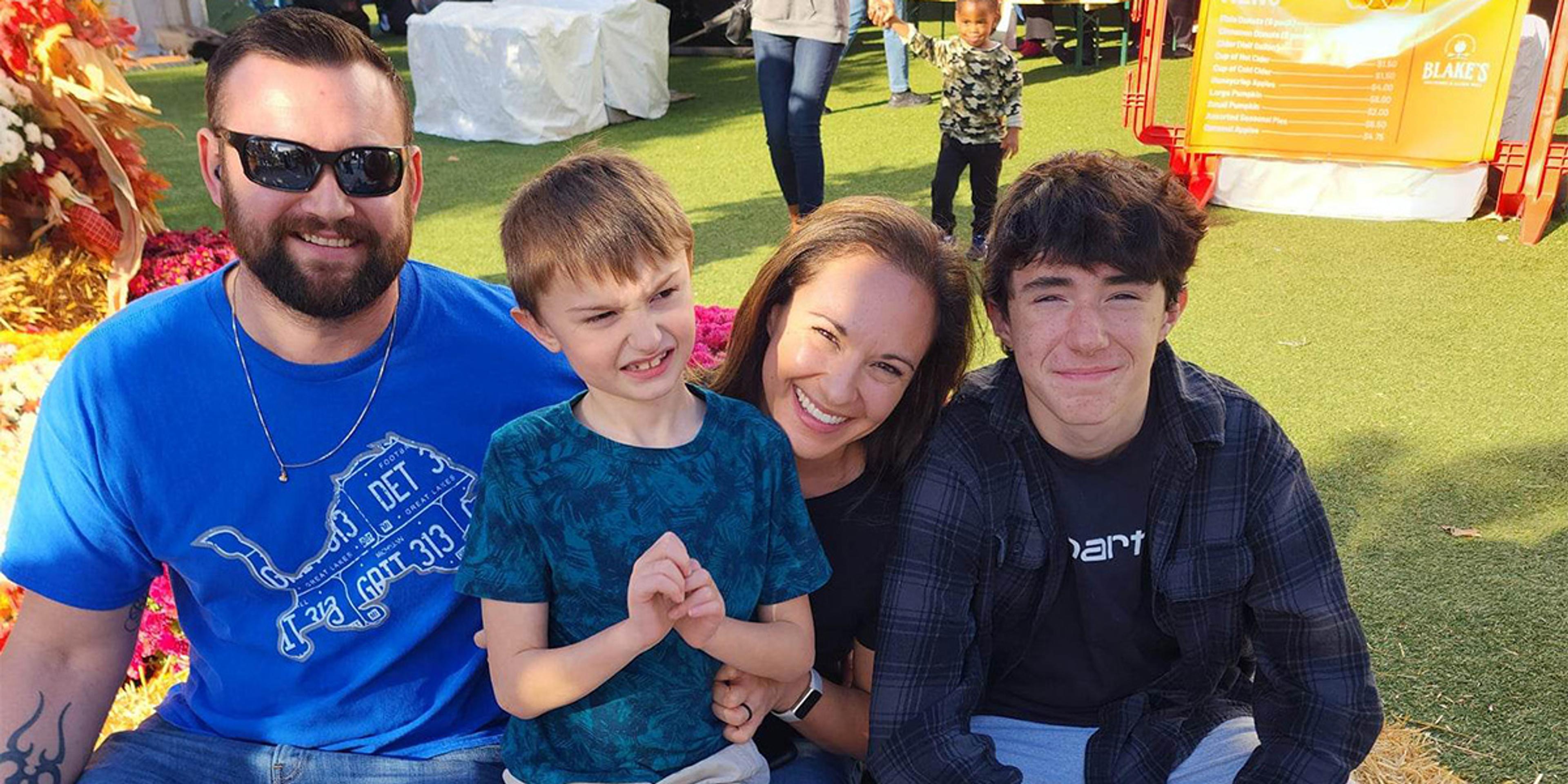‘We’re Seeing Smiles’: Yoga, Art and Movement Therapy Helping Syrian Refugees Overcome Trauma
Julie Bitely
| 4 min read
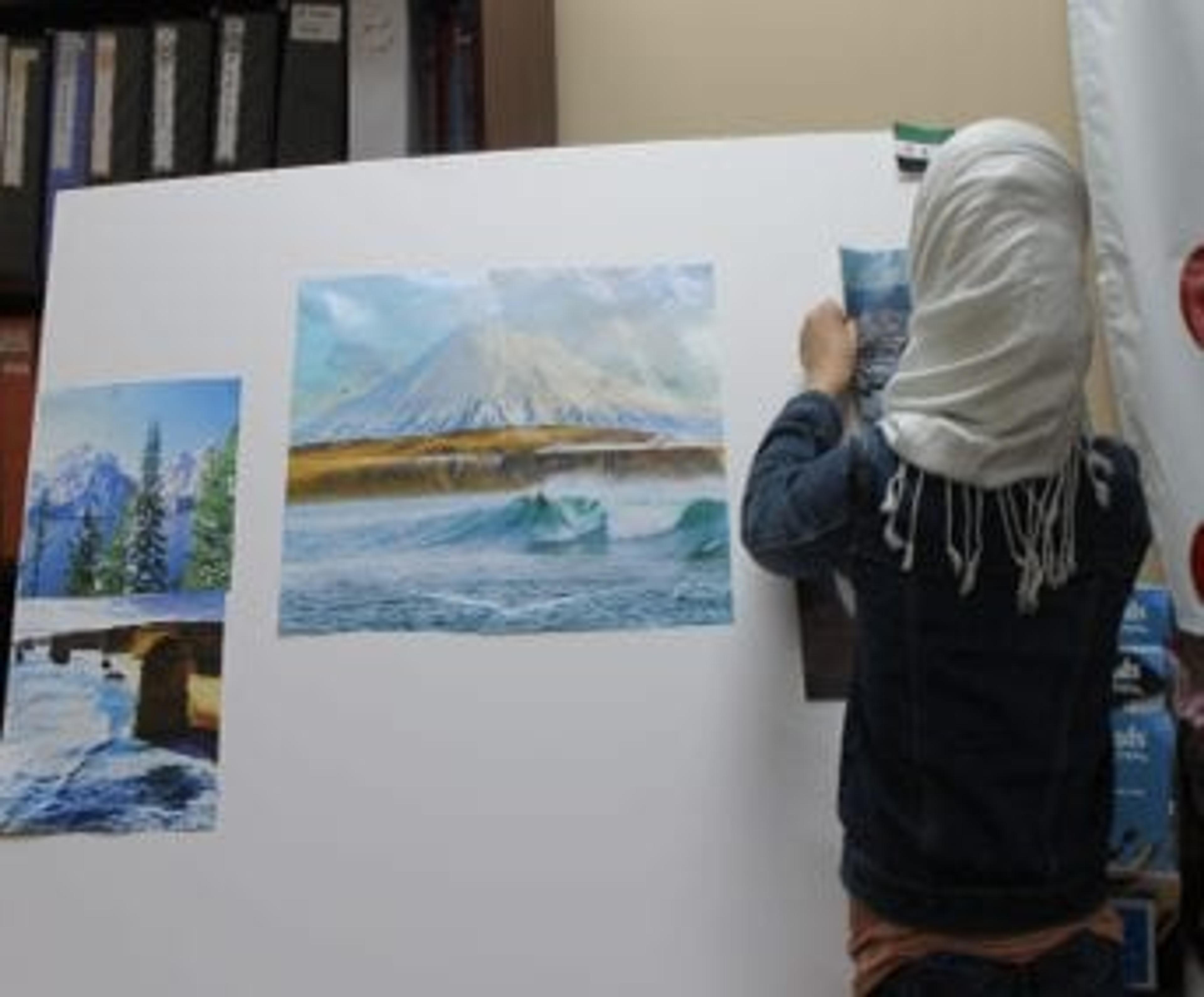
For refugees fleeing a war-torn homeland, resettlement to a new country doesn’t magically erase the trauma that’s been experienced. That’s been the case for Michigan transplants of the Syrian Civil War, based on research by the Stress, Trauma, and Anxiety Research Clinic (STARC) at Wayne State University. The team found that one in three adults screen positive for post-traumatic stress disorder – a rate that lines up with Vietnam War vets. PTSD results from exposure to extreme traumatic experiences and symptoms can include high anxiety, nightmares and flashbacks. Additionally, nearly half the adult population experience high levels of depression and anxiety. Children carry this mental load as well, with about 50 percent showing high anxiety and 80 percent experiencing separation anxiety when its time for them to go to school. After so much time together throughout the migration process, its hard for children to assert a sense of independence and go off on their own. Helping Syrian refugees in a culturally empowering way
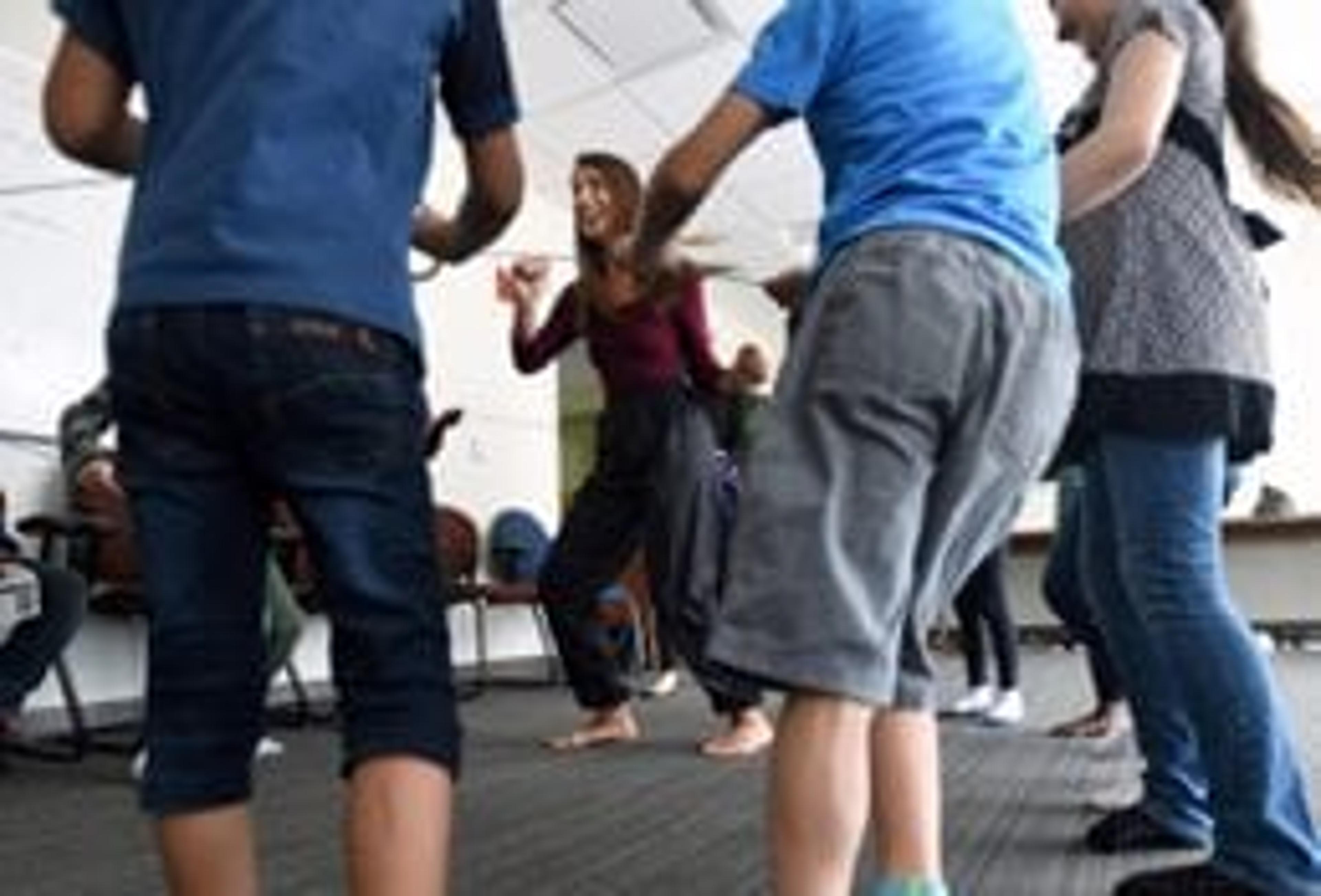
Lana Ruvolo Grasser, graduate student with STARC, leads kids in a dance break during a movement session. Photo credit: David Dalton With language and cultural barriers to overcome, STARC decided to offer mindful yoga classes to adult women and choice of art therapy or dance and movement therapy for children to help them process and overcome some of the hardships they’d endured on their journey to Michigan and the lingering effects of having to leave their home under duress. The Blue Cross Blue Shield of Michigan Foundation and other funders helped support the initial offerings, which were started in 2017. Lana Grasser is a dancer and graduate research student leading the program who has watched women and children bloom. Not only are the interventions cost-effective to provide, they help this at-risk population learn a lifelong coping skill in an environment that respects and embraces their culture. Women and children make social connections and develop friendships with others who understand their language and can relate to what they’ve all been through. “It’s been a great fit for our population,” she said. “We’re seeing smiles.” Breaking through with positive results Classes for moms and their children take place in the same building, which makes it easier for children to be separated for the hour they’re engaged in art and dance. Grasser said in Middle Eastern cultures, talking about mental health and emotions can be viewed as taboo. By focusing on movement and art to process emotions, STARC staff have been able to break through.
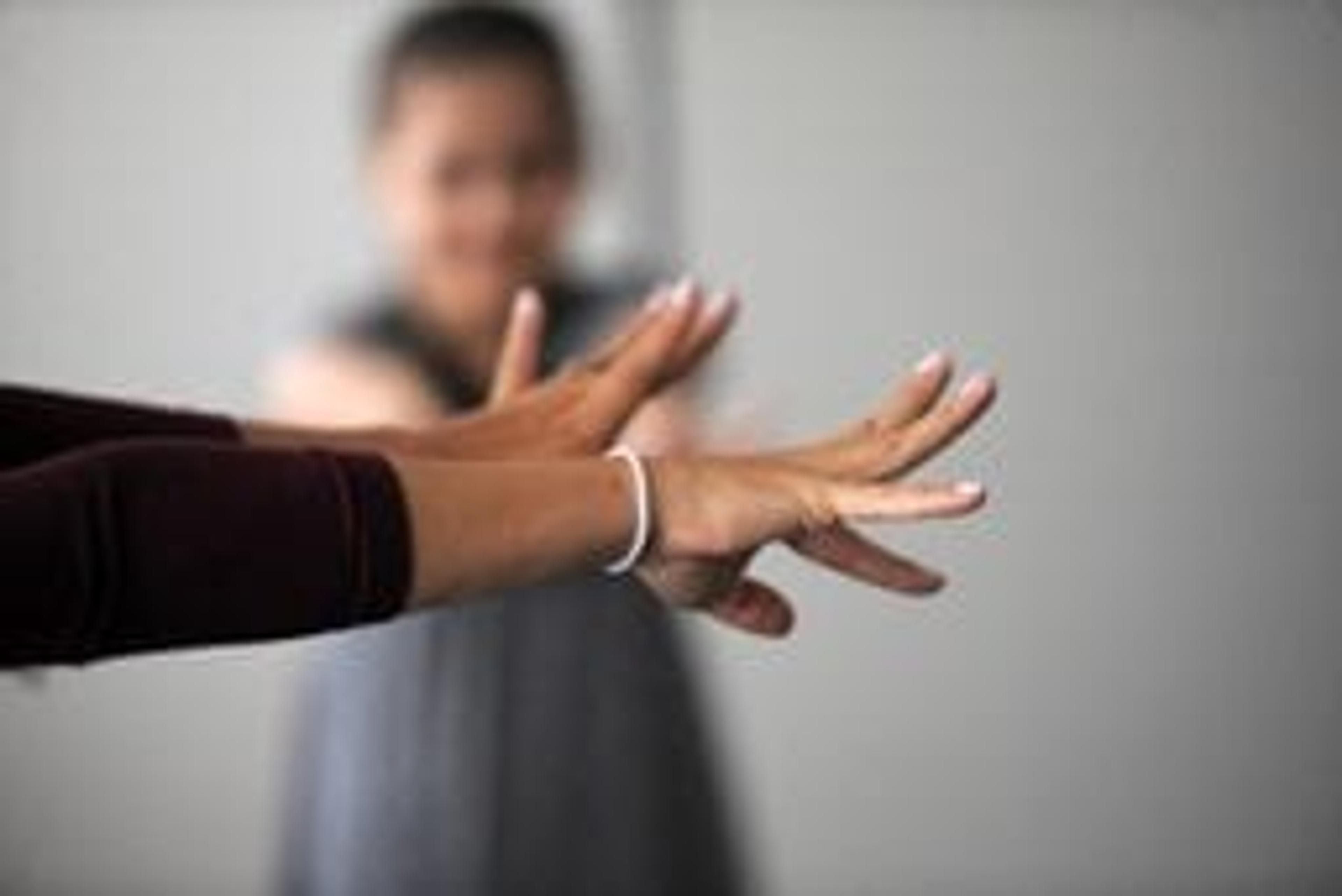
Lana Grasser works on a tension release exercise with participants. Photo credit: David Dalton Surveys given to class participants have shown that for those who started with high levels of depression and anxiety, those feelings have subsided to a great degree. Based on self-reporting, participants are also experiencing fewer symptoms of PTSD and better overall health. Grasser said the interventions are particularly important for children. Unaddressed trauma at a young age can impair a child’s ability to learn in school and form social relationships. It can also translate to worse health outcomes as an adult. And, research has shown that the severity of symptoms in children is often closely associated with their mothers’ distress and PTSD symptoms. “They really are kind of immersed in her world and if she has stress and anxiety, that really translates to the kids,” Grasser said. By offering a solution to women and their children, Grasser and STARC director Arash Javanbakht are hopeful their futures will be bright in their new country. “Migration has always happened for happy or sad reasons, and it will continue. We can do a lot to protect the refugee families, and those children who will be future American adults, against the profound lifelong negative impact of trauma, depression and forced migration,” Javanbakht wrote in this article. “These measures can assure a productive, functional and well-assimilated future for them.” If you enjoyed this post, you might also like:
- How a Lansing Agency is Helping Refugees Take Charge of Their Health
- DLIVE: At the Intersection of Violence and Public Health
- Here for Michigan, Now and Always
Photo credit: David Dalton, courtesy of STARC

